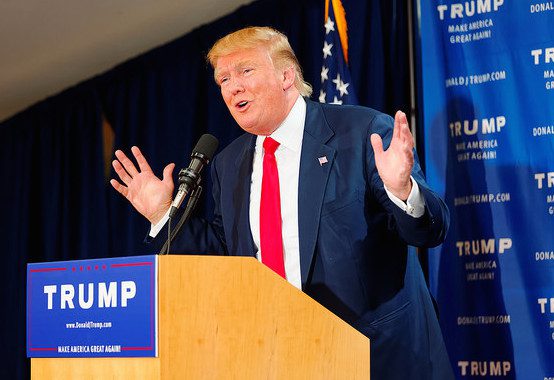How the GOP Failed to Stop Trump

Dan Drezner speculates that political scientists unwittingly paved the way to a Trump victory:
So why has it been proved wrong? My hypothesis is that GOP decision-makers also read the same analyses and concluded that they did not need to do anything to stop Trump. Sure, his poll numbers stayed robust even after he kept saying racist and insulting things, but there were good auxiliary hypotheses to explain why that was the case. They kept reading analysis after analysis in 2015 about how Donald Trump had little chance of winning the GOP nomination. They read smart take after smart take telling them that Trump didn’t have a chance. Even as the media covered Trump, even as late as the South Carolina debate, pundits were also talking about how his latest transgressive comment would doom his chances.
So GOP party leaders didn’t take any action. Except that the reason smart analysts believed Trump had no chance was because they thought GOP leaders would eventually take action.
This certainly seems to have influenced how the other candidates have chosen to behave. Almost every other candidate planned his path to the nomination on the assumption that Trump would cease to be a factor, would implode, or would quit out of pique or boredom well before now. The other candidates haven’t consistently attacked Trump or run negative ads against him, and have focused their efforts on destroying each other while Trump continues to gain ground. None of them planned for the scenario that is now unfolding because none of them really thought it was possible, and except perhaps for Cruz none of them has much of a backup plan. The anti-Trump candidates assumed that the problem would take care of itself, and they were concerned only with positioning themselves to take advantage of the fallout of Trump’s collapse.
Many an anti-Trump pundit has contributed to creating a false sense of security by reassuring everyone that his support was limited and his voters are unlikely to turn out for him. Both of these claims have been or are being proven false with each new contest. Some kept promising (and are promising even now) Rubio will save them in the end when there is no good reason to believe this. Anti-Trump Republicans have very much wanted these things to be true, but by repeatedly insisting that they were true they effectively told everyone else that nothing needed to be done to stop Trump. That position might have been defensible six months ago, but it stopped making sense in the fall. To cling to it well into the new year was ridiculous.
As Drezner suggests, the fault here lies with the many different political actors’ excessive confidence in Trump’s non-viability even when the evidence kept telling them they should rethink their assumptions. The theory won’t hold up the way it’s expected to if party actors don’t behave as they normally would to organize resistance against an unacceptable nominee. If everyone in the party keeps waiting for someone else to stop the unacceptable nominee on the assumption that “the party” will do it, no one organizes the necessary resistance, or at least no one organizes in time to prevent that candidate from winning.
Comments